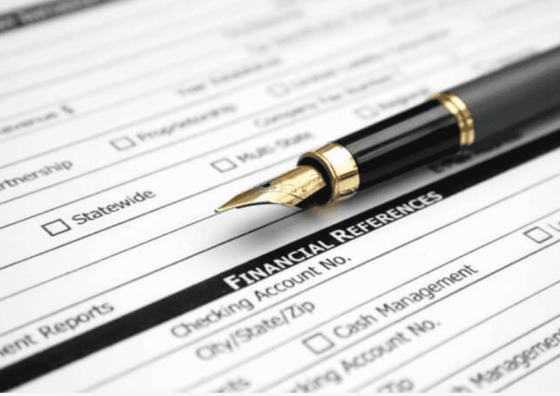If you’re a small business owner, like 31.7 million other Americans, and are looking to boost your business, consider taking out a loan specifically tailored to businesses. This can help finance equipment purchases or cover operational costs.
But how many types of business loans are there, how do they work, and which one to choose?
Let’s find out.
How Do Business Loans Work?
Small business loans allow entrepreneurs to invest in their ventures. With this type of loan, a lender will provide funds to a business owner, who must repay the debt, plus interest, within an agreed-upon timeframe.
There are many different types of business loans. And every type has different business loan requirements. Let’s check them out.
7 Types of Business Loans
If you need financial assistance for your business, take a look at the seven types of loans listed below:
SBA Loans
SBA loans are long-term loan options provided by banks that come with a partial government guarantee from the Small Business Administration.
So, if you take out an SBA loan and can’t repay it, the SBA will pay the amount guaranteed to the lender on your behalf.
By offering this type of guarantee, the SBA safeguards lenders against possible loss. And as a result, lenders are more likely to offer loans with better terms (e.g., lower APRs, longer repayment periods, etc.).
You can take out SBA loans for amounts as low as $5,000 or as high as $5 million. They also come with very generous repayment terms — up to 25 years.
SBA loan requirements can be summarized as follows:
- Your business must have been in operation for at least two years
- Your annual revenue must exceed $100,000
- Your credit score should be 620 or higher.
Business Line of Credit
A business line of credit functions similarly to a business credit card — you only need to repay the amount your business spends. Also, with a line of credit, you’re working directly with cash instead of getting charged for taking out a cash advance.
Business lines of credit typically span from $10,000 to $1 million and have a loan term length of six months to five years. Additionally, business loan interest rates are usually as low as 7% but no higher than 25%.
To be able to apply for a business line of credit, your business needs to have been running for at least six months and earn $50,000 or more a year.
Working Capital Loans
A working capital loan can help businesses in need of a quick cash influx for covering day-to-day operating expenses, like payroll. These types of loans are typically short-term and can take the form of term loans, lines of credit, or invoice factoring.
The amount you can borrow ranges from $2,000 to $5 million. To qualify for a working capital loan, your business must have been profitable for the past two years.
Term Loans
If getting a small business loan between $25,000 and $500,000 is your goal, you should opt for a term loan.
Applying for a term loan can be done through traditional banks and online lenders. Startups tend to have better luck with approval from online lenders since they have more lenient qualification requirements.
With a term loan, you could have up to five years to repay the loan. Small business term loans also have some of the lowest interest rates, typically starting at 9%.
If your credit score is above 650 and your business makes $300,000+ in annual revenue, you should be able to qualify for a term loan.
Merchant Cash Advance (MCA)
If you’re looking for an alternative to a traditional small-business loan, consider a merchant cash advance (MCA).
An MCA entails receiving money upfront that you’ll repay using a predetermined percentage of your future credit and debit card sales.
MCAs are ideal for small businesses that need quick access to cash to cover temporary shortages or expenses.
The factor rate for MCAs typically falls between 1.1 and 1.5.
Let’s say the MCA amounts to $10,000. With a factor rate of 1.2, you would need to pay back $12,000.
How to get a small business loan using MCAs?
Your business must be operational for a minimum of six months. You also need to have a credit score of 600 or higher and rake in at least $100,000 per year.
Invoice Factoring
Invoice factoring works by selling outstanding invoices to a factoring company. Namely, the factoring company gives you an advance on your uncollected invoices (typically 70%–95%).
After collecting the invoice, the factoring company will pay your business the balance minus the fees ranging from 0.50% to 5% per month.
How to get a business loan using invoice financing?
Your business must have been operational for at least six months and generate $50,000 or more in annual revenue.
Equipment Financing
Equipment financing is a loan that businesses take out to pay for equipment. This is also a self-secured loan, which means the purchased equipment serves as collateral.
Equipment financing differs from other loans because it’s based on the equipment itself. The terms of this type of loan will vary depending on the equipment you choose.
If you want to be eligible for the loan, your business must have been running for over 11 months. You’ll also need a credit score of 600+ and at least $100,000 in annual revenue.
How to Apply for a Business Loan
If you want to improve your odds of being approved for a business loan, you need to keep an eye on the following:
Consider What Type of Loan Best Suits Your Needs
As mentioned above, there are several different types of business loans. What you need to do is choose the one that best suits you and your current circumstances.
For example, equipment loans are typically reserved for businesses that need to finance the purchase of new equipment. On the other hand, if you need quick access to cash, consider a working capital loan.
See If You Qualify
See if you are elligible for the loan by checking if you meet the minimum small business loan requirements (e.g., credit score, annual revenue, etc.).
For example, to qualify for an SBA loan, you must have a credit score of 640 or higher and an annual revenue of over $100,000.
Evaluate How Much You Can Afford to Pay
Before applying for a business loan, look closely at your company’s financials, particularly cash flow, to determine how much you can afford to pay. You can also use a business loan calculator to estimate your monthly payments.
As a rule of thumb, your total income should be 1.25x greater than your total expenses.
For example, if your business generates $10,000 in monthly income, your expenses shouldn’t exceed $8,000. If you’re currently paying $7,000 in rent and payroll, then a loan payment of $1,000 shouldn’t be a problem to manage.
Determine If and How You Want to Use Collateral for a Business Loan
Business loans come in two forms, secured and unsecured. With a secured loan, you must use some of your business assets as collateral — like property or equipment. The lender can take these away if you don’t repay the loan on time.
Some lenders may require a personal guarantee for unsecured loans. In other words, if your business can’t repay the loan, you’ll have to do it yourself.
How to get a small business loan with bad credit and no collateral?
There are a few options. You can opt for SBA 7(a) loans under $25,000, term loans, merchant cash advances, unsecured business lines of credit, or business credit cards.
Compare the Lenders
Traditional banks aren’t the only lenders available out there. While the primary goal is to get a business loan with great terms, other aspects like funding speed can be equally important.
You should go for online lenders if:
- You don’t have enough collateral
- You’re new to the business
- You need quick cash
Online lenders usually provide loans of up to $500,000. The average business loan interest rate ranges from 7% to 99%.
Online lenders may have higher APRs than banks. However, they also have a higher approval rate and faster funding. In some cases, you can receive the money on the same day.
Opt for banks if you fulfil the following conditions:
- You’ve been running your business for at least two years
- You have a good credit score
- You don’t need the money right away
Traditional banking options usually come in the form of term loans, lines of credit, and commercial real estate loans. These alternatives allow you to finance properties or refinance them.
Bank business loan rates range between 3.19% and 6.78%.
Provide the Required Paperwork
Here are the materials you will need when applying for a business loan:
- The name and the address of your business
- The tax ID number for your business
- A business plan
- A loan proposal for your business
- Financial statements
- The company’s owner’s information
Something to remember — if you decide to use your personal credit score to apply for a small business loan, it could result in your credit score dropping.
Why?
Because credit bureaus make no difference between business and personal loan inquiries.
Conclusion
Now that you know how to get a loan to start a business, what’s next?
The first step is to decide what type of loan is best for your business. Consider things like funding speed, loan amounts, and interest rates. Also, make sure you meet the loan requirements.
After you choose your loan, hand in the needed paperwork and wait to get approved.
Good luck!
FAQs
How does a business pay back a loan?
The business pays back the loan by making monthly, bi-monthly, weekly, or daily payments to the lender. The amount of the payment will depend on the terms of the loan, such as the interest rate, how much was borrowed, and the length of the loan.
If you have a fixed repayment plan, you’ll pay the same amount for every payment. On the other hand, variable repayments fluctuate, meaning the owed amount could change.
Is a business loan easy to get?
The answer is yes and no. The process can be simple if you have all the required paperwork, a good credit score, and enough collateral. However, getting approved for a business loan can be difficult if you don’t meet the minimum requirements set by lenders.
How soon do you have to pay back a business loan?
Short-term bank loans typically have repayment terms of 1–3 years, while long-term loans’ repayment terms are usually 3–10 years. However, these time frames differ from lender to lender. SBA loans have by far the longest repayment duration — up to 25 years.
How do business loans usually work?
The terms and conditions of business loans can differ significantly, depending on your loan type. However, they all operate under the same basic rules:
- You fill out a form to apply for a loan.
- A bank or other financial institution gives you a specified amount of money.
- In exchange for the loan, you need to provide a personal guarantee or collateral.
- You get the funds as a lump sum payment or as a credit line.
- With a prearranged payment schedule, you pay back what was borrowed.
And how do business loans work if you can’t pay back the loan on time? You may be subject to late fees or other penalties. Moreover, the lender can claim your assets as collateral.






